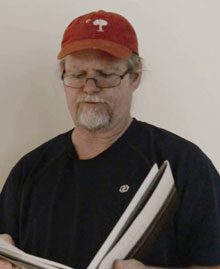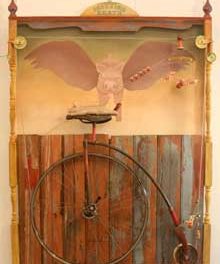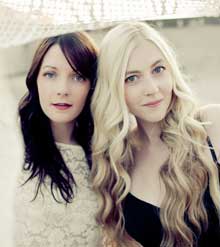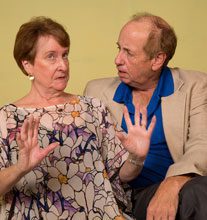Tim Conroy on his new collection of poetry and the brother who encouraged him to write it.
 When he was a little boy, Tim Conroy remembers listening to his teenage brother and sister fight over which of them would grow up to be the best poet. The sibling rivalry was intense.
When he was a little boy, Tim Conroy remembers listening to his teenage brother and sister fight over which of them would grow up to be the best poet. The sibling rivalry was intense.
“They’d always tease each other with that poem by C.P. Cavafy. “For some people the day comes when they have to declare the great Yes or the great No. It’s clear at once who has the Yes ready within him…”They’d argue about which of them had the ‘Yes’. . . about which one was destined to go ‘from honor to honor, strong in his (or her) conviction.’”
With his own debut poetry collection, Theologies of Terrain, just out from Muddy Ford Press, Tim has been thinking a lot about those childhood days. His sister Carol went on to become a published poet. His big brother grew up to be Pat Conroy.
“The other day, I went down to look at Pat’s papers at USC,” Tim tells me. “I asked Jessica Crouch, the archivist, to bring up the box of his poetry. I just wanted to go back through it, read it again. I was thinking about my own poetry collection finally coming out, and the encouragement Pat gave me for so many years, and how much he wanted to be a poet, himself. I was feeling all the emotions.”
If you’re at all familiar with the lyrical prose of Pat Conroy, it probably won’t surprise you that he was a poetry lover. But perhaps you didn’t know that, before becoming an international best-selling novelist, he dreamed of being a poet.
“It was his first love,” says Tim. “And what’s interesting is to see how he struggled with it. I’m digging through these archives, and I’m finding all these poems that Pat was working on when he was taking James Dickey’s class back in the late 60’s or early 70’s. And I see all these starts and stops . . . poems that didn’t work out. And volumes and volumes of journals full of ideas, some that never went anywhere. And it struck me how hard he worked as a writer. It didn’t come down miraculously from heaven for Pat. He worked his fanny off to get that good.”
Of course, as a poet, Pat Conroy never thought he was that good – not good enough to meet his own standards, anyway. Despite having a couple of poems published early on – “he even got paid for them!” Tim says – he soon followed a piece of advice he’d learned in Dickey’s poetry class: Find the rhythm of your language and stick to it.
“I found that sentence written in the margin of his notebook from that class,” Tim says. “I also found a short story written in the back of that notebook. Even then, I think Pat was feeling constrained by poetry. He was struggling to contain himself in that form. He was beginning to ‘find the rhythm of his language’ . . . and it was prose.”
But Pat Conroy never lost his great love of poetry, which he held to be the highest literary form until the day he died. His rivalry with his sister Carol never abated, either. Right before The Prince of Tides was published, Carol got wind of what the “Savannah” character was like, a character Pat had based on her, and she withdrew her permission to let him use two of her poems in the novel. Pat ended up writing his own poems for the book, one of which ends, rather famously: Man wonders but God decides/When to kill the Prince of Tides.
While poetry remained a source of tension between Pat and Carol, it was always a thread of connection between Pat and his brother Tim.
“He was always calling me up, excited about some poem he’d just discovered. I remember soon after our little brother Tom died, Pat called me and said, ‘I’ve got to read you this poem!’ It was something by Mary Oliver he’d just come across; he found it comforting and thought it might help me.”
And Tim wasn’t the only one who bonded with his brother through poetry. He says Pat and his wife, novelist Cassandra King, conducted a love affair over poetry – “writer’s desk to writer’s desk” – throughout their 20-year marriage. “Pat would discover a great poem, print it out, and leave it on the desk in Sandra’s writing room for her to find. She’d do the same for him. Some days, this was their main mode of communication.”
Pat also encouraged Tim to follow his own poetic aspirations, and was sometimes frustrated that his little brother, a special education teacher, wasn’t dedicated enough to that pursuit. “I would send Pat my poems over the years, but I was on this continuum of a professional life. I never had the time . . . I never quite found my conviction. Once Pat died, there was a sense of greater urgency, of need, of wanting to explore that more.”
Tim’s new poetry collection is part of Muddy Ford’s Laureate Series, which pairs newer poets with poet laureates, who mentor them. Tim’s laureate mentor is Ed Madden, from Columbia, with whom he says he developed a wonderful working relationship.
“Our first meeting was in the building where my brother Tommy committed suicide, but Ed didn’t know that at the time. Still, there I was, sharing my poems in that place, and feeling all these emotions rise . . . Later, my book launch was held at this coffee bar, Immaculate Consumption, directly behindthe building of Tommy’s suicide . . . and again, there are all these feelings and memories coming to the surface. And I’m thinking about Tommy, and about Pat . . . “
In fact, there are poems about both Tom and Pat in Theologies of Terrain.
“In the poem about Pat, A Tidal River Answers Prayer, I wanted to put myself into the mind of Pat as a 16-year-old boy coming into Beaufort for the first time,” he says. “Maybe the voice gets a little older and different as the poem goes on, but I end it in the voice of that 16-year-old.”
Celebrated southern novelist Ron Rash (Serena) calls Theologies an “excellent debut.”
“There is sadness in these poems,” he writes, “vivid renderings of childhood abuse and of lives that ended too soon, but the beauty of the natural world is also acknowledged, as is the realization that memory offers consolation as well as sorrow, all of which leads to the poet’s hard-earned affirmation that ‘love has saved me.’ Bravo!”
So much of that saving love was the brotherly kind, and on the eve of the Pat Conroy Literary Festival – where he will read from his first poetry collection, here in Pat’s beloved muse of a hometown – Tim Conroy has been missing his big brother and wishing he were here.
“Pat would understand the agony of what I’m feeling . . . and the vulnerability . . . and the joy. Now that he’s gone, I’m trying to honor the love he gave me. Again, I sense a new urgency. I know how much he wanted me to do this. Even if I fail it won’t matter, because the effort was what he wanted.”
The Pat Conroy Literary Festival is October 19 – 22 in Beaufort. For a complete schedule of events, visit www.patconroyliteraryfestival.org. For more information about Tim Conroy’s Theologies of Terrain, visit www.muddyfordpress.com






